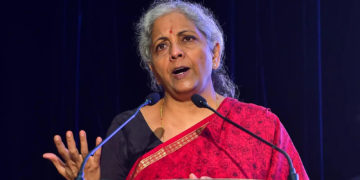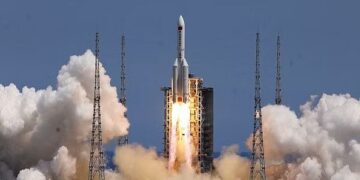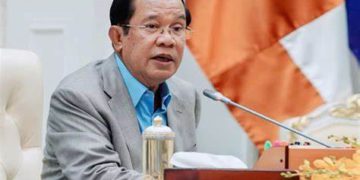Japan expressed concern over the continued operation of US. military V-22 Osprey aircraft, despite its request to ground them pending safety confirmation after a recent fatal crash, according to Tokyo’s chief government spokesperson on Friday.
As a key U.S. ally, Japan had requested the suspension of all non-emergency V-22 Osprey flights over its territory following a Wednesday incident in western Japan where one Osprey crashed into the sea. Japan’s Coast Guard confirmed one fatality, with the search ongoing for the remaining seven aboard.
The Pentagon, however, announced on Thursday that it was still conducting Osprey flights and claimed unawareness of any official request for grounding. The cause of the crash is currently under investigation.
In response to the Pentagon’s statement, Japan’s chief cabinet secretary, Hirokazu Matsuno, emphasized that Tokyo had officially made the request. He expressed concern that despite repeated requests and a lack of sufficient explanation from the U.S. military, the Osprey continued its flights.
The Japan Self-Defense Forces (SDF)
The Japan Self-Defense Forces (SDF), also an Osprey operator, declared a suspension of Osprey flights. Japan’s foreign minister, Yoko Kamikawa, directly approached U.S. ambassador to Japan Rahm Emanuel, seeking confirmation of Osprey flight safety before further operations.
The U.S. embassy in Japan refrained from immediate comments on the matter.
The deployment of Osprey aircraft in Japan has been contentious, with critics of the U.S. military presence in the southwest islands citing a susceptibility to accidents. Japan, a pacifist nation, hosts the largest concentration of U.S. military power overseas, including a carrier strike group, airlift hub, fighter squadrons, and a Marine Corps expeditionary force.
Robert Dujarric, a scholar at Tokyo‘s Temple University, highlighted Japan’s sensitivity to residents’ concerns about military operations. He noted that Japan’s historical reliance on the U.S. for security since World War II makes it crucial to address community concerns regarding military assets deployment.
Dujarric does not anticipate the issue escalating into a major diplomatic dispute between the allies, who are strengthening ties in response to China’s assertive military posture in the region.














































